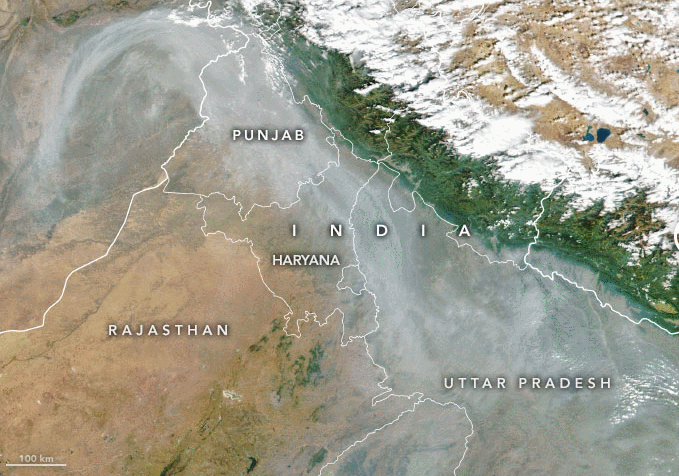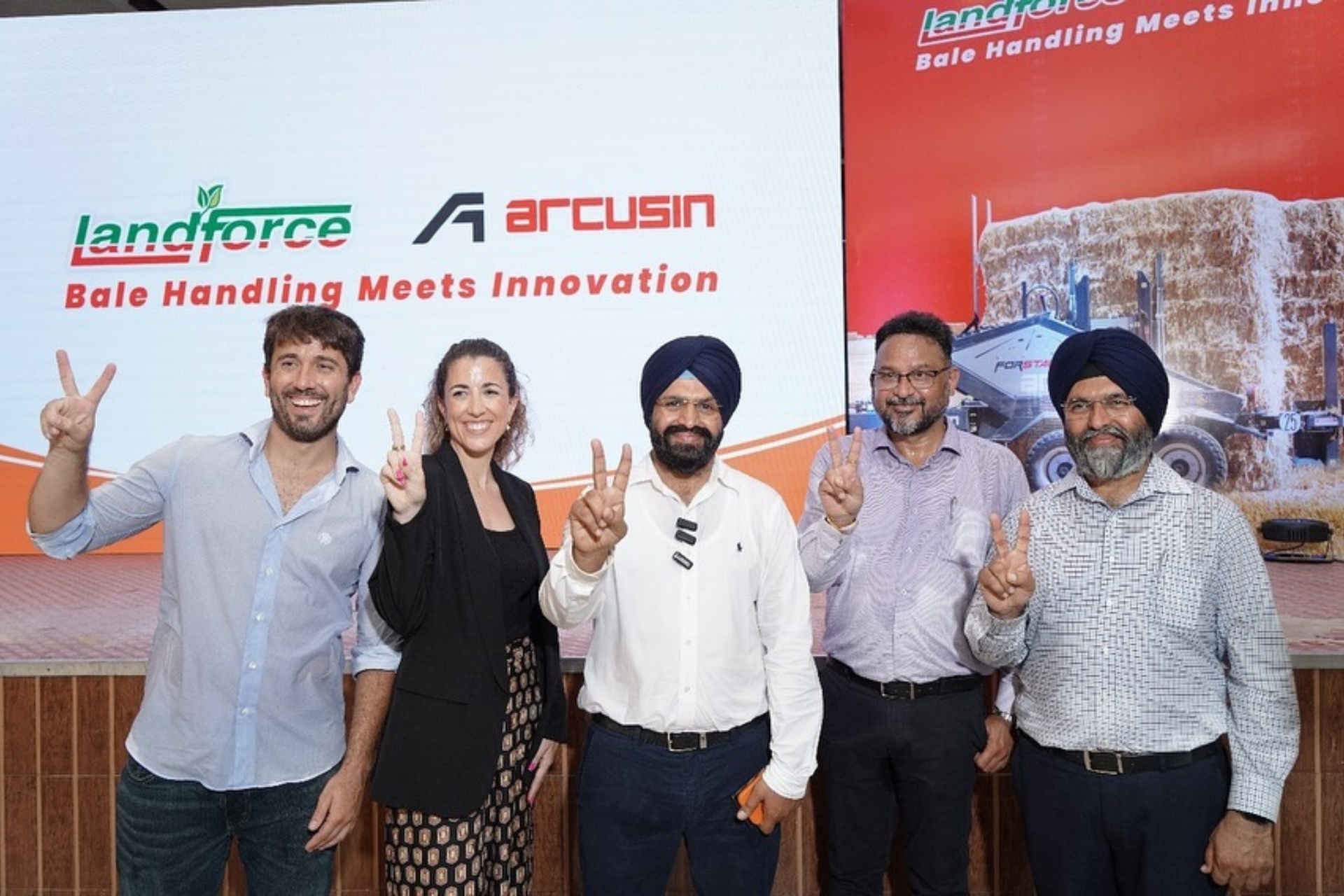Did you know that beyond the enticing images, flavors, aromas, and sounds, India is facing a serious problem that threatens the environment and the lives of millions? The rice straw left in the fields after harvest, by itself, is not harmful and does not pose any threat. But if 150 million tons of straw are produced each year, the situation changes… especially if there’s no plan for dealing with it.
At Arcusin, we are ready to tackle this issue! And India is already aware of it.
Arcusin Leads the Change and Revolution
India’s commitment to technological revolution is a fact, and Arcusin has seen it firsthand through our partnership with local manufacturer and distributor Dasmesh Mechanical Works (Landforce) to be a driving force of change.
For many years, burning the rice straw was the easiest, quickest, and most economical solution for Indian farmers. But what happens when 150 million tons are burned? The air becomes an invisible enemy for northern India and cities like Delhi, which are covered in a thick layer of smog that causes severe respiratory problems and affects the quality of life for millions. In response, the Indian government decided to ban the burning of rice straw and other crops, and this practice is now completely prohibited by law in states like Punjab, Haryana, and Uttar Pradesh.
So the big challenge is: How to get rid of 150 million tons of straw without burning it? And quickly! Because the rice harvest season in India lasts just 30 to 45 days, and right after this harvest, the land must be clean and ready for the next winter crop. If it isn’t, there’s a risk of losing it, affecting the livelihoods of thousands of families, and the land becoming a breeding ground for pests and diseases that will harm future crops.

Captured with the Visible Infrared Imaging Radiometer Suite (VIIRS) of the Suomi NPP satellite – November 1, 2022
Technological Innovation
The solution to this problem lies in opening the doors to “game changers” like Arcusin. Bale handling is still scarce and predominantly manual in India, and our machinery will take it to a new level, greatly easing the lives of the country’s farmers. We saw this excitement firsthand at the end of July in Amargarh, in the state of Punjab, with the event launching the partnership between Arcusin and Landforce.
The event was presided over by our CEO Blanca Cusiné and our Engineering Director Ferran Cusiné and had a large audience, including farmers from Haryana and Punjab, government officials from Punjab, representatives from biomass power plants, and agricultural engineering scientists from Punjab Agricultural University (PAU) in Ludhiana. All of them were eager, excited, and very enthusiastic about Arcusin’s machinery. What was once a huge problem and threat is now becoming a vital resource. With us, fields are cleaned in record time, and straw can be grouped, transported, and stored quickly and efficiently and (here’s the good part) reused to produce biofuel, paper, or even animal feed.
Transforming Agriculture in India: A Bright Future
The excitement in Amargarh turned into enthusiasm when the audience saw our MultiPack E14 in action. The demonstration was a resounding success, and India can already see the increase in efficiency and significant cost reduction in every way that Arcusin machines bring.
Swarnjeet Singh Panesar, owner of Landforce, did not hesitate to point out that the collaboration “brings revolutionary technology” to India. “The future is bright for this country, and we couldn’t be more excited about the projects that are about to begin,” added an emotional Blanca Cusiné.
Our mission is to help the farming community with innovative solutions that improve lives, increase efficiency, and reduce costs.
📲 Seen on socials





